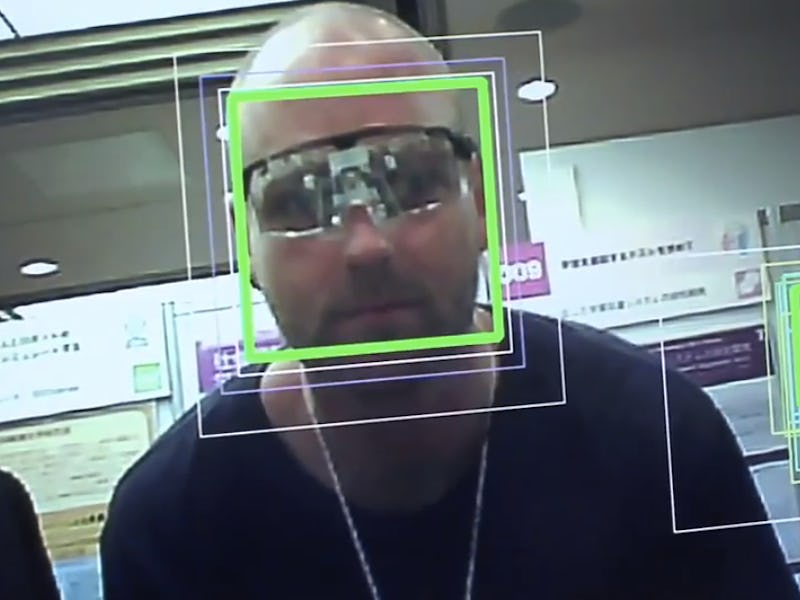Japanese Company Debuts Privacy Visor That Scrambles Facial Recognition Software
What's the price on privacy? About $240.

Concerned about unwanted photographs that can be linked to your identity? Well, maybe you should be. Digital facial recognition software has advanced to the point that free software exists online that can pin you back to your Facebook profile picture with startling accuracy. In fact, the growing chorus of concern about the invasive technology has led Nissey Corp., based in Fukui Prefecture, Japan to release a privacy visor that claims to scramble digital facial recognition software.
“This is a way to prevent privacy invasion through the many image sensors in smartphones and other devices that can unintentionally photograph people in the background,” National Institute for Informatics researcher and a visor developer Isao Echizen told IT World.
The visor looks like something you would wear to take a nap on an airplane, except it allows enough light through that you can still see. Instead of blocking all light, the mesh screen blurs the light that normally reflects on your face, confusing digital facial recognition software that uses unique shadow arrangements to make identifications. At $240, the visor isn’t cheap, but with almost one security camera for every 12 citizens in the UK alone, privacy is beginning to look less like a privilege than a necessity.
“Your face is the information that identifies you. It’s unstoppable once it’s leaked on the web, because you can’t change it like a password,” Echizen told The Japan Times.
A previous version of the visors scattered facial shadows with 11 LED lights that were invisible to the wearer but showed up on cameras. The technology proved clunky, if groundbreaking, and the new mesh glasses with slick titanium frames will undoubtedly help the developers shift into the actual market. It’s definitely weird to walk around wearing facial identification-skewing glasses, so it’s important to at least look cool while you’re doing it.
Facial recognition has grown enormously powerful, with one study of random pictures of students on a college campus able to identify one in three of the sample faces. Of course, once a computer makes an identification, there is a host of information available online that could compromise an individual’s privacy, including, for some, their social security numbers.
All together, the privacy visor is a major step up from the ski mask that most people use to conceal their identity. And yet for some reason, Echizen doesn’t think that the visor will help people looking to beat the software for legal purposes to get around facial recognition software.
“During a criminal investigation, security camera footage will be checked with human eyes. The glasses cannot be used to dodge such a process,” Echizen said.
Either way, if you run a convenience store and someone enters wearing either a ski mask or a privacy visor, we recommend being on your guard.